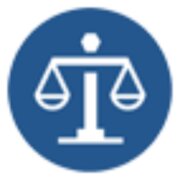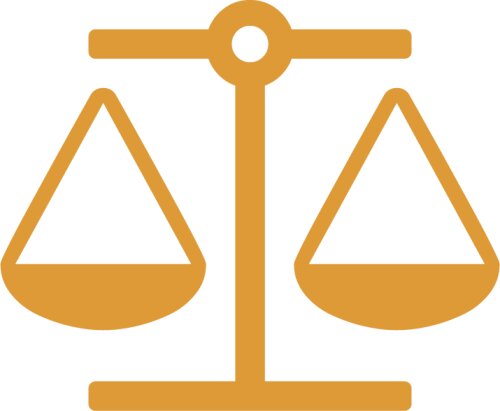Best Data Center & Digital Infrastructure Lawyers in DR Congo
Share your needs with us, get contacted by law firms.
Free. Takes 2 min.
Or refine your search by selecting a city:
List of the best lawyers in DR Congo
About Data Center & Digital Infrastructure Law in DR Congo
The field of data center and digital infrastructure in the Democratic Republic of Congo (DR Congo) is rapidly evolving as the country seeks to enhance its digital transformation and leverage information and communications technology (ICT) for economic growth. Data centers are critical facilities that house servers and networking equipment used for storing, processing, and distributing vast amounts of data. Digital infrastructure also comprises the physical and virtual technologies necessary to support digital activities, which includes broadband connectivity, fiber optic networks, cloud platforms, and more.
As demand for digital services increases, so has the need for clear legal frameworks to regulate data protection, privacy, cybersecurity, foreign investment in technology, infrastructure development, and compliance with both local and international standards. Stakeholders such as businesses, investors, service providers, and consumers are all impacted by legislation and policies in this sector.
Why You May Need a Lawyer
Navigating the data center and digital infrastructure landscape in DR Congo presents unique legal challenges. Individuals and organizations may require legal assistance in several key situations, including:
- Drafting and negotiating contracts related to data hosting, colocation, or managed services
- Ensuring compliance with data protection and privacy laws
- Resolving disputes over access, data breaches, or service agreements
- Handling regulatory approvals for building or operating data centers
- Advising on foreign investment regulations and partnerships
- Acquiring construction, zoning, and environmental permits
- Understanding obligations related to cybersecurity and national security
- Managing intellectual property and software licensing issues
- Clarifying cross-border data transfer regulations
- Representing interests in cases of government intervention or cyber incidents
Given the complexity and evolving nature of these topics, legal consultation is essential for risk management and strategic planning in the digital sector.
Local Laws Overview
The DR Congo has introduced and updated several key laws and regulations relevant to the data center and digital infrastructure industry. Some of the most pertinent areas include:
- Data Protection and Privacy - The Law No 20/017 of 25 November 2020 relates to the protection of personal data and privacy. It establishes the legal basis for data processing, user rights, obligations for data controllers and processors, and enforcement mechanisms.
- Cybersecurity - National Cybersecurity laws and regulations set the standards for protecting network and information systems against cyber threats, and outline requirements for reporting cyber incidents.
- Licensing and Authorizations - Operators of data centers and related services may need various licenses from the Autorité de Régulation de la Poste et des Télécommunications du Congo (ARPTC), which oversees ICT infrastructure.
- Investment and Ownership - Laws relating to foreign investment, such as the Investment Code, can affect ownership, partnerships, or joint ventures involving international companies interested in the data center space.
- Intellectual Property - Software, digital content, and technological innovation are protected by DR Congo’s intellectual property laws.
- Environmental and Construction Compliance - Building data centers or laying fiber optics may require environmental impact assessments and adherence to construction codes.
Frequent reforms mean that these laws can change, so it is crucial to stay informed and seek updated legal advice.
Frequently Asked Questions
What are the regulatory requirements for setting up a data center in DR Congo?
You will need to obtain relevant authorizations from the ARPTC and possibly from other governmental bodies depending on the nature and location of the data center. Compliance with data protection, cybersecurity, construction, and environmental laws is also required.
Does DR Congo have a data privacy law?
Yes. DR Congo’s Law No 20/017 on the protection of personal data sets out obligations for data controllers and processors regarding the collection, storage, and use of personal information.
Who oversees data centers and digital infrastructure regulation?
The main regulatory authority is the ARPTC. Other agencies, such as the National Agency for Cybersecurity, may also be involved depending on the specific area.
Are foreign companies permitted to own and operate data centers in DR Congo?
Yes, but they must comply with investment regulations, local ownership requirements in some cases, and obtain the necessary licenses and approvals.
Are there laws on cross-border data transfer in DR Congo?
The personal data law regulates cross-border transfers and generally requires either a legal basis for the transfer or the recipient country to provide adequate data protection.
What are the penalties for non-compliance with data protection or cybersecurity regulations?
Penalties can include administrative sanctions, fines, suspension or withdrawal of licenses, and, in some cases, criminal prosecution.
Can a data center provide services to government agencies?
Yes, but additional security, privacy, and procurement regulations may apply. Strict vetting and contractual obligations are common in such situations.
What steps are necessary if a data breach occurs?
Entities are generally required to promptly notify regulators and, in some cases, affected individuals. Measures to mitigate harm and cooperate with investigations must also be taken.
How does intellectual property law impact data center operations?
Software, databases, and other innovations used in a data center may need to be licensed or protected under intellectual property law to avoid infringement and secure competitive advantage.
Are environmental assessments required for building a new data center?
Often, yes. Environmental regulation requires assessments of potential impact, especially for larger projects or those located in sensitive areas.
Additional Resources
For additional support in data center and digital infrastructure matters, you may wish to consult:
- Autorité de Régulation de la Poste et des Télécommunications du Congo (ARPTC) - The main ICT sector regulator
- Ministry of Digital Economy - For government digital transformation initiatives and policies
- National Agency for Cybersecurity - For guidance on cybersecurity and incident reporting
- Chamber of Commerce and local business councils - For investment support and networking
- Reputable law firms specializing in technology and infrastructure
- Professional associations in ICT and technology fields
Next Steps
If you require legal assistance regarding data center or digital infrastructure activities in DR Congo, consider the following steps:
- Identify your specific needs - whether it is compliance, contract review, dispute resolution, or licensing
- Gather all relevant documents and information about your project or legal matter
- Consult with a qualified lawyer who has experience in ICT, data protection, or infrastructure law in DR Congo
- Prepare a list of questions and objectives to discuss with your legal advisor
- Stay informed on changes in local regulations and industry standards
- Engage with local industry bodies and participate in educational seminars where possible
Taking these steps will position you to operate more securely and efficiently in DR Congo's growing digital landscape.
Lawzana helps you find the best lawyers and law firms in DR Congo through a curated and pre-screened list of qualified legal professionals. Our platform offers rankings and detailed profiles of attorneys and law firms, allowing you to compare based on practice areas, including Data Center & Digital Infrastructure, experience, and client feedback.
Each profile includes a description of the firm's areas of practice, client reviews, team members and partners, year of establishment, spoken languages, office locations, contact information, social media presence, and any published articles or resources. Most firms on our platform speak English and are experienced in both local and international legal matters.
Get a quote from top-rated law firms in DR Congo — quickly, securely, and without unnecessary hassle.
Disclaimer:
The information provided on this page is for general informational purposes only and does not constitute legal advice. While we strive to ensure the accuracy and relevance of the content, legal information may change over time, and interpretations of the law can vary. You should always consult with a qualified legal professional for advice specific to your situation.
We disclaim all liability for actions taken or not taken based on the content of this page. If you believe any information is incorrect or outdated, please contact us, and we will review and update it where appropriate.
Browse data center & digital infrastructure law firms by city in DR Congo
Refine your search by selecting a city.












